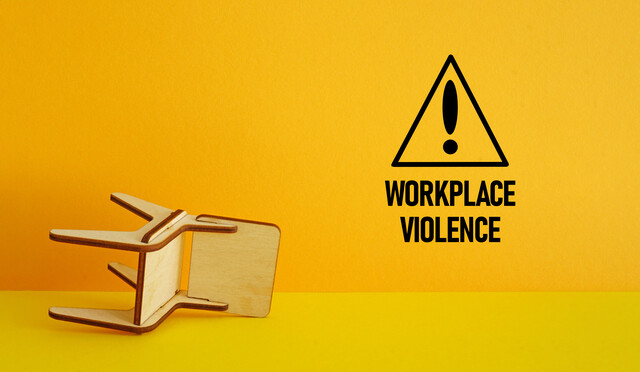Now that you know the basics of behaving professionally and with business etiquette in place, it's time to troubleshoot common complaints and challenges.
Sexual harassment
Sexual harassment is a complex issue but one that cannot be overlooked. Unfortunately, many people, especially those of a certain age or certain background, tend to dismiss the concept of sexual harassment and write it off as either overblown or inevitable -- that people are just going to behave the way they will and there isn't anything we can do about it (similar to a "boys will be boys" mentality, but with adults). These people are wrong. Not only should we expect people to behave appropriately in the workplace, we actually have the legal right to demand it, as sexual harassment is illegal. And sexual harassment doesn't always look the way people expect it to; a wide variety of behaviors can count as sexual harassment, which may not be as overt as some other behaviors.
In many places of business, remarks about how a person looks on any given day are extremely common and usually without any intent to make someone uncomfortable. Unfortunately, the bad apples ruin it for everyone. The truth is that women in the United States receive an incredible amount of information regarding how they "should" look. A lot of this information comes with judgment: You are not attractive if your hair is short, if your skirt is long, if you are too heavy, if you're too thin, if you are too short or too tall, if your skin is clear, if your skin is a shade other than white, and so on. These messages never end and it can be exhausting, as well as threatening. The reality is that when a society places so much emphasis on how a woman looks, she is commonly objectified and consequently viewed as a thing rather than a person.
Most of the time when someone makes a comment in a business setting, especially a compliment, it is meant with respect and sometimes admiration. The trick is understanding the difference between a compliment and harassment and the onus of this is not put on the person receiving the comment, but rather the person who is giving it. There is a world of difference between, "You look nice today," and, "That dress is sexy." And sexual harassment doesn't only stem from men, and isn't only directed towards women, though that is the most common situation. Proper business etiquette advises us to either not make any comments about appearance, or to be sure that any comments we make are completely acceptable; a good rule of thumb is that if you wouldn't say the words to an 8-year-old, don't say them about the appearance of a co-worker.
Of course, in some situations this rule may be flexible. If you are close friends with a co-worker, you may feel more comfortable making certain statements -- which is perfectly fine, as long as you make them privately, where no one else can hear you. On that same note, any time you talk about someone's appearance, consider not only the person to whom you're talking, but also anyone else within earshot. If somebody feels that what you said could constitute sexual harassment, even if it was not directed toward them, it will become a big problem for you. People have a right to work in a safe and professional environment, so if they feel uncomfortable about sexual comments, they have a right to express that and expect change, even if they were not the direct victim.
Comments regarding someone's sexual orientation, gender identity, sexual habits, and so on, should never be discussed in a professional setting. It is rude, irresponsible, and unprofessional.
Most importantly, with sexual harassment, be sensitive to others. If a man flirts with a co-worker who rejects his advances, he would be wise to not make any further comments about their appearance or behaviors in case they may be misinterpreted. Likewise, employees who are interacting with other professionals, clients or customers, or anyone else within their professional capacity must also avoid the appearance of impropriety, especially when there is a power differential. A gynecologist, for example, should never compliment or hit on a patient. A teacher does not need to make any comments regarding a student's appearance, especially for older students. Even a pastor provides spiritual guidance, and thus could potentially abuse his or her position, possibly even without meaning to. The professional thing to do, which also happens to protect you legally, is to always err on the side of caution and to avoid even the appearance of impropriety.
Other areas of harassment
Some people are unprofessional and rude enough to believe it is acceptable to harass someone on the basis of their race, ethnicity, religion, age, nationality, disability, medical conditions, gender identity, sexual orientation, and so on. You certainly have the legal freedom to believe whatever you want regarding these aspects of a person's identity. You do not, however, have the legal freedom to make statements or perform other activities that would discriminate against or harass someone based on any of these things. If you believe that practicing homosexuals are going to hell, feel free to believe that, but not to say it at work. If you don't understand why someone would be transgender, you still don't get to make comments about it at work. If you believe your safety is at risk because you have a Muslim co-worker, you can find another job, but you can't make accusations based on their religion. Free speech does not apply to everyone, all of the time, no matter what; rather, certain things are protected and workplace discrimination is not legal.
When dealing with both sexual harassment and harassment of other aspects of an individual's identity, a common issue that arises is whether to report the harassment. Depending on the organizational culture, the harassment may be reported and handled informally -- usually if the situation can be resolved with some education and communication. In some businesses, making a report of harassment is a very serious matter, with formal reports and considerable consequences. An individual has to make the best decision they can regarding whether they choose to report harassment that is directed toward them, but with the understanding that it is perfectly appropriate and professional to report harassment at work.
If harassment is not directed toward you, but you are aware of it or see it, it is professional to intercede if you see it occurring, or report it if you are not present when it occurs. Part of your responsibility as a professional is to do your part to make sure that everyone at your company is safe from abuse and harassment.
Mea Culpa
There will be times in your professional career where you are wrong. Most likely, there will be lots of times in your professional career where you are very wrong. Sometimes the way that you are wrong will be related to your work itself; other times, it will be related to your etiquette and professionalism (or lack thereof). When this occurs, it is perfectly natural that you will be emotionally upset and you may disagree completely with whatever you are accused of having done. There are two recommended approaches to these situations:
-
Accept that you are wrong. When you are accused of doing something wrong, try to see it from the perspective of the other people involved. Sometimes it's a simple matter of miscommunication or misinterpretation; whether or not you believe you are truly at fault is irrelevant. If you can understand how someone else felt wronged by what you said or did, even without the intention to do so, simply apologize. It makes a mountain out of a molehill if you try to get into blaming the other person for misinterpreting you when the situation can be resolved by simply clarifying what you meant, and apologizing for any confusion.
-
Deny that you are wrong but do so professionally. Just because someone says you made a wrong decision, doesn't necessarily mean you did. If you consider their perspective as objectively as you can and you still believe their accusation to be false, you have the right to defend yourself. Of course, this should be done in a respectful and professional way. Leave your emotions out of it (as much as possible) and approach this situation with an eye toward resolution. Any supervisor or manager involved will appreciate both your professional behavior, as well as your desire to clear up the matter. If the other people involved, the ones who take issue with something you said or did, are coming from a place of emotion, instead of professionalism, this will predispose the supervisor to agree with you.
When someone doesn't like you
Shared environment
Depending upon your workplace and its organizational culture, there may be some elements of your environment that do relate to business etiquette. First, maintain some level of order in your work space. People have different styles and some people enjoy a more relaxed area than others, but some basic rules apply:
-
If you eat or drink at your work space, clean it up by the end of your day. That means to throw away any leftover food, dispose of any drink cups, and not to leave a mess for someone else to deal with, or that will simply leave you looking unprofessional. It can also have long-lasting effects on the attraction of insects and rodents.
-
If you listen to music in your work space, make sure your music isn't disrupting anyone else - including, simply whether or not they can hear it. Whether you want to listen to Kanye, or Peter, Paul, and Mary, chances are excellent that your co-workers don't always want to listen to the same music.
-
When you talk on the phone, whether it is your work phone or a cell phone, do so at an appropriate volume. Once again, you don't want to disrupt your co-workers, violate any confidentiality, or even just make people uncomfortable hearing you argue with your spouse or child.
-
Don't wear heavy perfumes or cologne. Many people are sensitive, or even allergic, to various odors. Practice good hygiene, but there is no need to drown yourself in Drakkar Noir.
-
Respect the break room. Do not take other people's food or drinks. Do not monopolize the refrigerator or microwave. And appreciate that other people want to have a relaxing break, as well, so don't bring any drama into the break room.
Addressing problems
Problems and challenges arise in the workplace all the time. Sometimes, part of your job will be to address those challenges. Sometimes it may not be part of your job to do so, but it will be part of your character, such as if you see something unethical, or you think a particular plan is unlikely to be successful. This is another area where practicing good business etiquette and remaining professional is absolutely vital.
-
Addressing something you caused - Sometimes a problem isn't someone else's fault, it's yours. You are going to be wrong sometimes and some of those times will have consequences. When you realize you have made a mistake, particularly one that cannot be easily or immediately rectified, it is incredibly important (and the professional thing to do) to notify your supervisor. Explain what happened, explain what you did wrong, apologize, offer any suggestions if you have them, and focus on finding a solution.
-
Addressing someone else's mistake - Sometimes when someone else makes a mistake, you have the luxury of choosing whether or not to report it. If the mistake can be rectified and is unlikely to occur again, the courteous thing to do is simply to allow the person to solve the issue without making it a bigger problem than it is. But when it is a bigger problem, you may have to go to your boss and explain the situation. When explaining the issue, it is appropriate to mention that someone else caused the problem, if it is relevant and the person is a peer or supervisor, but don't beleaguer the point. Pointing fingers and placing blame is unprofessional and unnecessary, unless it is a significant or recurring problem. If the mistake was made by a member of your staff, under most circumstances it is professional to handle that matter directly with your subordinates, rather then placing blame when talking to your own boss; you are responsible for those under your leadership, so it is professional to the act like it.
-
Addressing a major problem - When a major mistake is made, or a poor choice reflects a bigger problem, the professional thing to do is bring it to the people who need to know about it. Most commonly, this would include human resources, who will often handle the situation from there. If it is a problem within your department, or your company does not have an HR professional, you should go to your supervisor, who will address it appropriately from there, bringing you back in when appropriate and necessary. When you make a complaint, leave your emotions out of the issue, even if the situation is upsetting to you emotionally. You want to appear as objective as possible, and address the way the person's behavior is a problem for the company, not for you as an individual.
-
When you disagree with the boss - Sometimes the problem you are facing at work is that you disagree with a policy, a decision, or something else that was made or approved by your boss. No one wants to risk losing their job, so many people are comfortable with just ignoring the issue; but this is rarely the professional choice. If you believe that a decision is going to negatively impact your ability to do your job (or your staff's ability to do their jobs), negatively impacts your clients or customers, or you believe it to be unethical, it is your professional obligation to say so. However, business etiquette demands that you say so in an appropriate way.
If you are participating in a discussion, feel free to share your thoughts in a polite way and showing respect to everyone else in the meeting. Alternatively, if you're in a meeting but not discussing the issue and it is simply brought up as a new policy or a decision, business etiquette dictates that you behave a different way, based on your organizational culture, as well as who else is in the meeting. If a meeting consists of people at your rank and higher, ask if it is appropriate for you to ask a question or share a thought regarding the decision, then behave appropriately based on the answer. If, however, you are at a meeting with subordinates, do not question your boss at the meeting. Rather, seek them out privately after. If your boss hears what you have to say and still stands by his or her decision, then you follow their decision.
The only time it is acceptable for you to continue pressing the issue, or to not follow your instructions, is if you believe the decision is unethical or may be illegal. In these cases, address the matter with HR and/or other staff as may be appropriate, along with the boss.
Chain of command
Speaking of dealing with bosses, another fun part of business etiquette relates to appropriately following the chain of command. Most companies do have an established hierarchy and you should have a flow chart that was provided to you when you were hired. If not, ask your supervisor or an HR professional for one. It will guide you through the steps of to home you go to address a matter and in what order. People take chain of command very, very seriously and it would be a mistake of epic proportions not to do so.
If you have a question, problem, new idea, or anything else that would require the approval of someone over you, go to your direct supervisor first. The only time when it would be appropriate to go to anyone else first would be if you are going to HR, especially if your direct supervisor is the problem. Allow your supervisor or HR to take the issue from there - at least, for a while. If you do not get an answer any time soon, remind your supervisor or HR professional of the issue; it is entirely possible that they simply forgot or have had too many other things on their plate. If they do come back to you with a response and the decision is "no," ask them politely to explain their decision. If you still feel strongly that your request is the right course of action, ask your supervisor if you might be allowed to take it directly to their supervisor or boss. But only do this if it is worth upsetting your supervisor, as that may naturally occur if this is your decision, especially based on your supervisor's personality and your working relationship with him or her.
If you are denied the opportunity to speak with someone higher up the chain of command, respect that decision, unless you believe it is an issue of ethics or legality, or has the potential to make a significant difference to the success of the business. But never make the mistake of flat out skipping any rung of the company ladder unless it is absolutely necessary to do so.
Saying no
There will be times in your career when you feel the need to respond to a request with the answer "no." Whether your plate is no longer full, but overflowing, that you believe the request to be outside of your job description and you are ill equipped to perform such a function, or you have some sort of other moral or ethical objection, you must find a polite way to say no. You should also respect that every time you say no, it means another colleague will have to take on that work. By no means does this indicate that you should feel obligated to say yes when you feel strongly about something, but that part of the organizational culture may be saying yes sometimes to things you simply don't really want to do in order to have the freedom to say no at other times. When a request is made of you, if it falls outside of your job description and does not pose an ethical problem, but rather is inconvenient or conflicts with some of your personal plans, a simple "no" should be sufficient. If you feel the need to explain a little, such as explaining that you attend religious services on Friday evening, feel free to do so.
Alternatively, if you refuse to do something because you believe it to be unethical or immoral, be prepared to politely but succinctly shut it down. If you believe your employer does not understand that they are asking you to do something in conflict with your personal beliefs, you can share your perspective with them, if you have the ability to do so without becoming emotional, and while keeping your language objective, so as not to accuse your boss of being unethical or immoral him or herself. If you believe your boss knows that they are asking you to do something inappropriate, refuse to do so firmly and don't engage in an argument. Document the request, discuss it with HR if appropriate, and report it if you believe it to be in violation of law.























